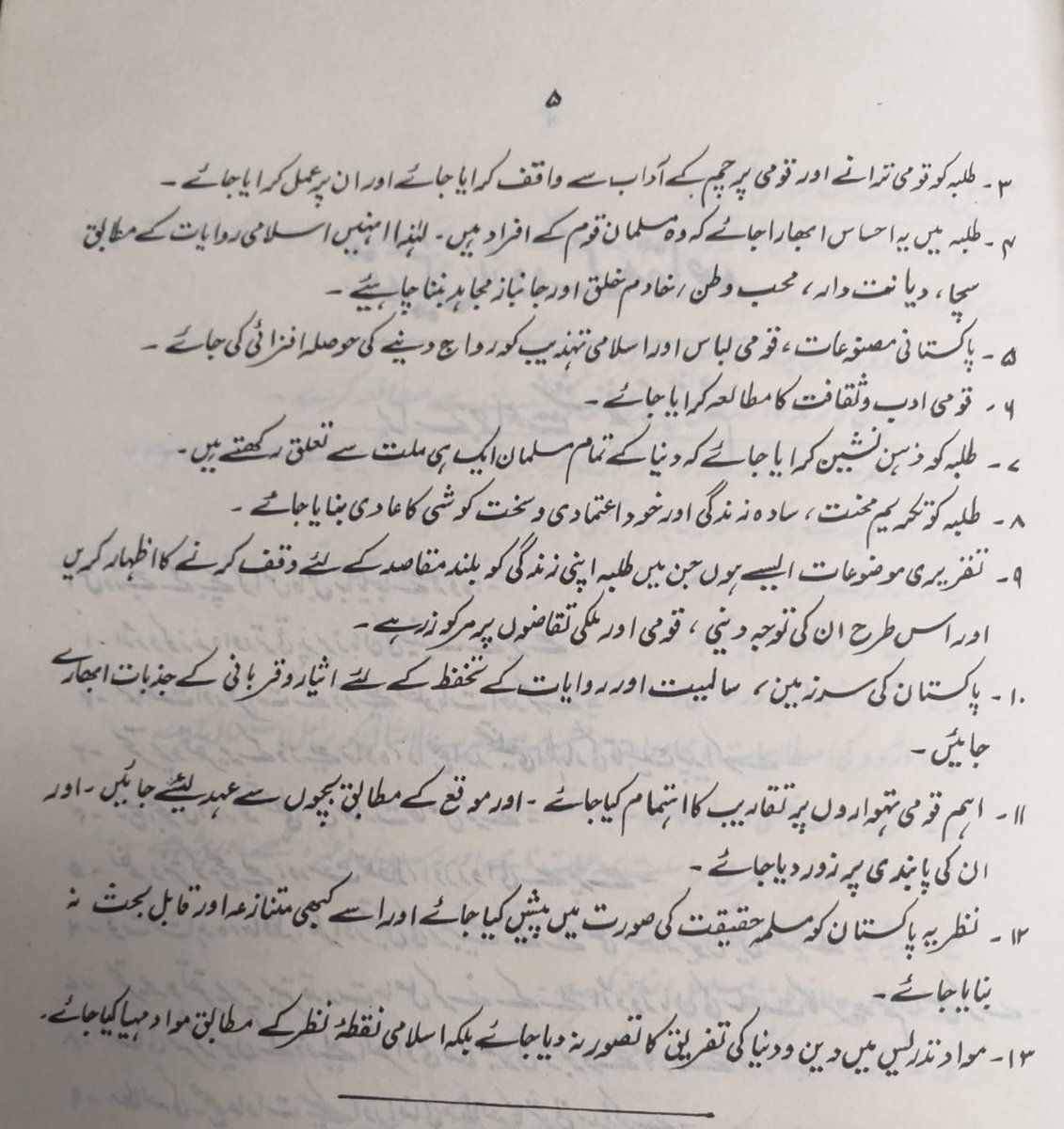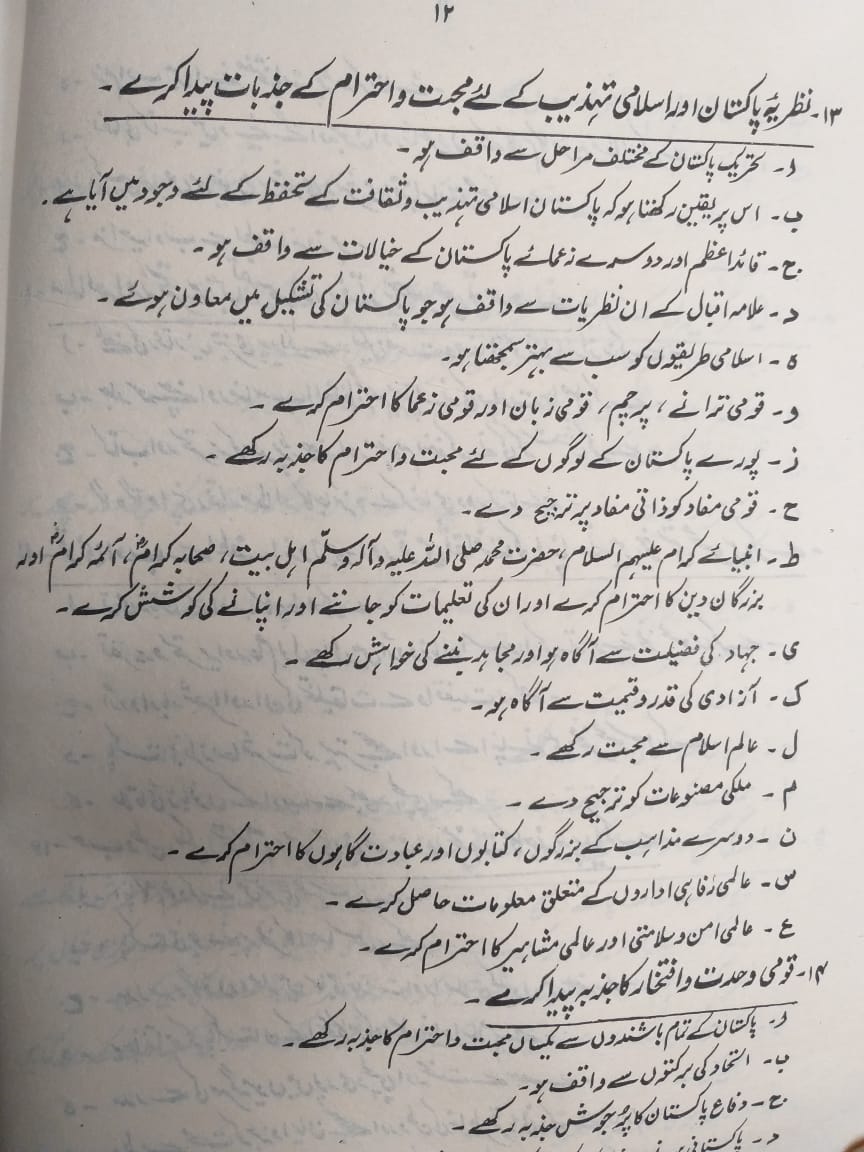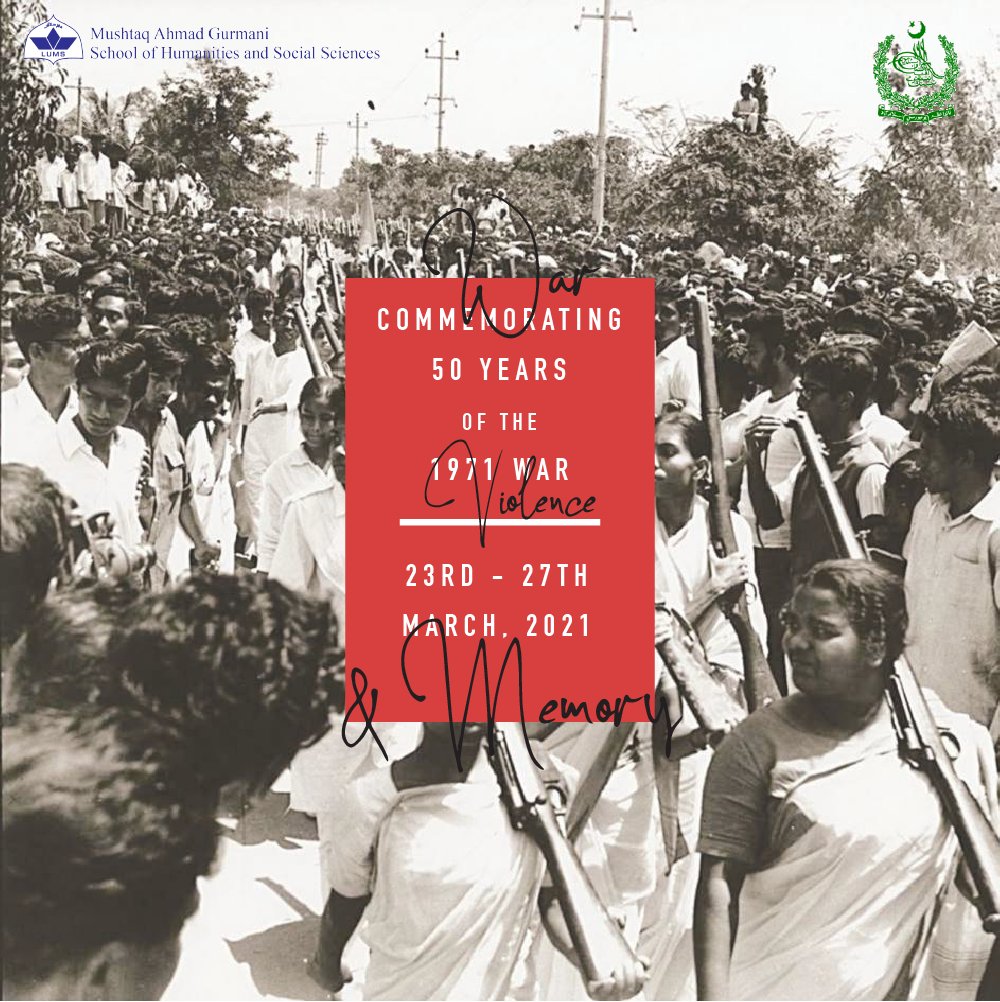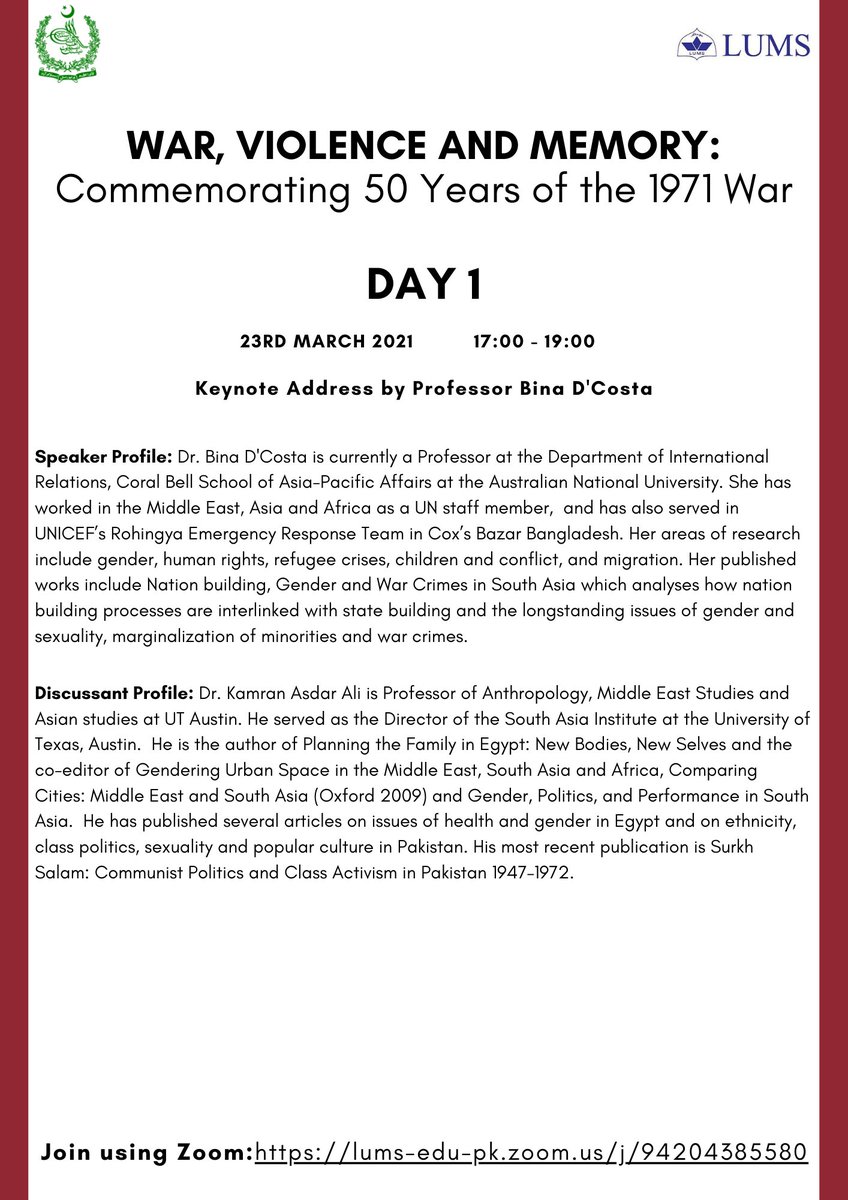
mu.arriKH
मुअर्रिख़
مؤرخ A chronicler, an annalist, a historian; a chronologer; a biographer
How to get URL link on X (Twitter) App








 No Urdu textbook can be complete without Mir Anis and his Marsiyas. But this is for the literary merit of Marsiya and its rootedness in the broader cultural milieu and not because it is about 'Islamic' faith/history. There is nothing inherently Islamic about Urdu.
No Urdu textbook can be complete without Mir Anis and his Marsiyas. But this is for the literary merit of Marsiya and its rootedness in the broader cultural milieu and not because it is about 'Islamic' faith/history. There is nothing inherently Islamic about Urdu.

 Tuesday 23 March, 17:00-19:00 (Lahore time)
Tuesday 23 March, 17:00-19:00 (Lahore time)
